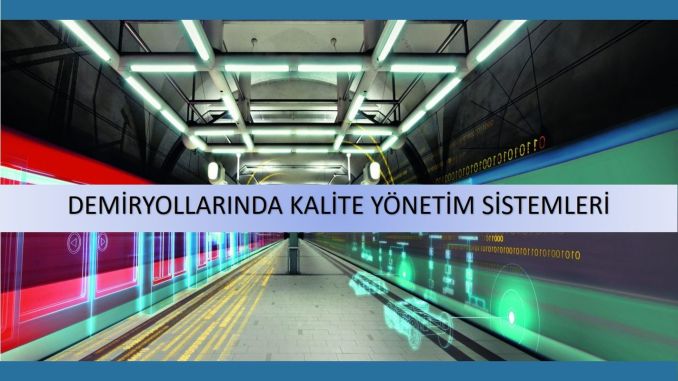
If the railway industry is considered in terms of quality approach, it can accommodate a large number of standards and management systems. The application width has many applications in such a comprehensive industry.
ISO 9001: 2015 Quality Management System in Railways
Considered the ancestor of almost all standards, ISO 9001: 2015 quality management system is the most needed base standard. ISO 9001 management system can be easily applied in almost every point from inter-institutional technological infrastructure to all employees in management in the railway sector and its connected supply chains.
ISO 45001: 2018 Occupational Health and Safety Management System for Rail Systems
Occupational safety finds its place among the indispensable standards in heavy and high-risk sectors such as railways. So much so that it is almost mandatory to implement the ISO 45001 occupational safety management system. Even if the OHS system did not have this standard, it would definitely be implemented in all business lines covered by rail systems. I can easily say on behalf of Adldocument that if ISO 9001 is the locomotive that bears the burden of the most mandatory legal requirements of the sector, we can compare the heaviest wagon to ISO 45001.
Even examining the following example regarding OHS in railways will be enough to understand how important this document is in terms of sector.
Indispensable Technological Standard: ISO 27001: 2013 Information Security Management System
The rail systems industry, regardless of how it is considered, includes many new technologies in terms of information security applications.
The size of the companies in the sector, the large number of domestic and international enterprises, and the large enterprises of the same scale in their suppliers emphasize the security of customer information. Moreover, since these institutions are mostly national and international public institutions, ISO 27001 reveals the importance of information security.
Reliability and information management have a different place in railways. Storing designs, latest technologies and their inventions, utility models and patent information is only possible with ISO 27001. It is precisely for this reason that suppliers who have to participate in public tenders merge and each supplier certifies these management systems separately.
If you are producing to public institutions, it is mandatory to obtain these iso certificates at the legal level.
ISO 10002 Customer Complaint and Satisfaction Management System
Work on railways does not only end with delivering products and services. When it comes to human life at the end of the business, buyers' scrutiny and frequent customer satisfaction should be close to flawless.
No product has a chance to be used on railways without going through numerous tests and controls. Today, thousands of components and technologies that make up a rail system must comply with all standards. It can be seen that there are many standards that must be complied with in the production of railways.
Compulsory CE Certificated Parts
It is unthinkable that any component does not have CE certification in rail system vehicles. Although the margin of error is unacceptable in the sector where security is based, it would not be wrong to say that the only acceptable group of errors is none other than the scientific conditions. However, even this cannot be considered an excuse.
The only solution to many problems, such as electrical systems, parts that work under pressure and load and wear constantly, and summer and winter flexing metals, is to install only CE marked products on rail systems.
Unlike the management systems, the CE mark contains only parts that comply with the European Union requirements given to the products. It is unrealistic to have a CE certificate without a management system like ISO 9001: 2015.
Finally IRIS Management System
International RailwayIndustry Standard “International IRIS Standard” is a quality management standard developed for the railway industry and written only for rail systems such as trains, subways, trams, wagons and locomotives. It is not easy to implement the IRIS standard, which is completely compatible with the practices of railways. Obtaining an IRIS management system became mandatory in 2014 and was required by TCDD as an official document as a tender condition.
As we mentioned at the beginning of our article, the IRIS standard, which has some serious pattern with all management systems, determines the basic principles of the sector.
In summary, the railway sector, whose heavy industry conditions are getting harder with clear lines, should have a management system that complies with all the standards written here, and it should have ISO certificates by passing the audits with very high scores.


Be the first to comment